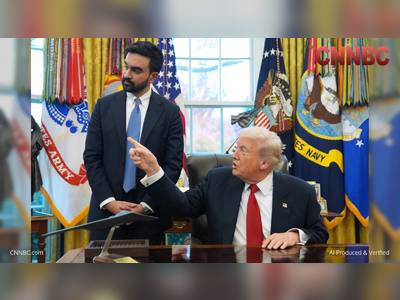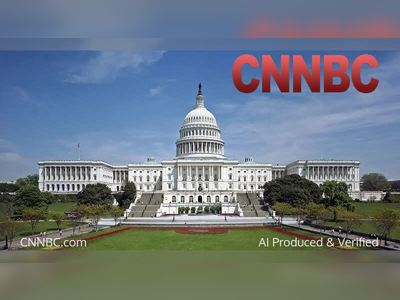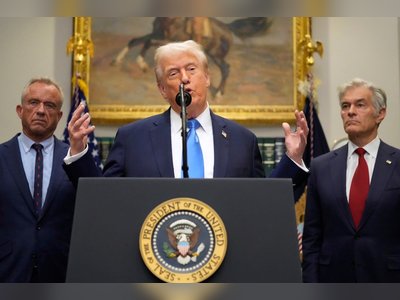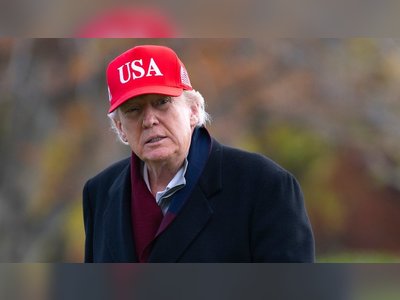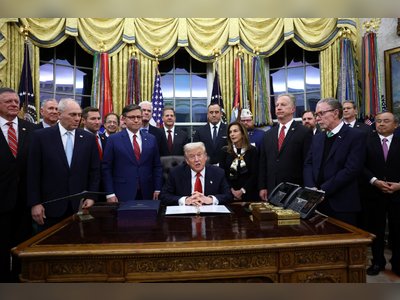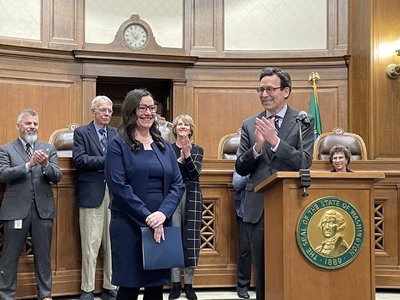Federal Judge Dismisses Cases Against Comey and James Over Illegal Prosecutor Appointment
Indictments voided after ruling that Trump-appointed interim attorney lacked lawful authority
A federal judge has dismissed the criminal cases against former James Comey and New York Attorney General Letitia James, ruling that the prosecutor who brought the charges was unlawfully appointed.
The decision, issued by Cameron McGowan Currie of the U.S. District Court for the Eastern District of Virginia, found that interim U.S. Attorney Lindsey Halligan lacked legal authority under the Appointments Clause of the U.S. Constitution.
Currie determined that Halligan’s appointment bypassed federal statutes governing interim U.S. attorneys and that all actions she took—including indictments—were therefore void.
The judge wrote that such an appointment “had no legal authority” and that “all actions flowing from Ms. Halligan’s defective appointment … are unlawful exercises of executive power and must be set aside.”
Comey, who had been charged with lying to Congress and obstructing a congressional proceeding, and James, who faced bank-fraud-related charges, both pleaded not guilty.
Their defence teams argued the prosecutions were motivated by political retaliation at the behest of Donald Trump, who had publicly pressed for their prosecution.
The dismissal, though entered without prejudice, means charges could in theory be refiled—but in Comey’s case the statute of limitations has likely expired.
The Justice Department, led by Pam Bondi, announced it will appeal the ruling, maintaining that Halligan served validly as special U.S. attorney and can continue prosecuting the matters.
The ruling signals a major check on prosecutorial appointments and undercuts efforts to employ interim appointments to bypass the Senate confirmation process.
Legal scholars say the case will have far-reaching implications for the governance of the U.S. Department of Justice and for the use of interim prosecutors in politically-sensitive investigations.
The decision could influence how future administrations staff federal prosecutor offices and pursue high-profile cases tied to executive priorities.
The decision, issued by Cameron McGowan Currie of the U.S. District Court for the Eastern District of Virginia, found that interim U.S. Attorney Lindsey Halligan lacked legal authority under the Appointments Clause of the U.S. Constitution.
Currie determined that Halligan’s appointment bypassed federal statutes governing interim U.S. attorneys and that all actions she took—including indictments—were therefore void.
The judge wrote that such an appointment “had no legal authority” and that “all actions flowing from Ms. Halligan’s defective appointment … are unlawful exercises of executive power and must be set aside.”
Comey, who had been charged with lying to Congress and obstructing a congressional proceeding, and James, who faced bank-fraud-related charges, both pleaded not guilty.
Their defence teams argued the prosecutions were motivated by political retaliation at the behest of Donald Trump, who had publicly pressed for their prosecution.
The dismissal, though entered without prejudice, means charges could in theory be refiled—but in Comey’s case the statute of limitations has likely expired.
The Justice Department, led by Pam Bondi, announced it will appeal the ruling, maintaining that Halligan served validly as special U.S. attorney and can continue prosecuting the matters.
The ruling signals a major check on prosecutorial appointments and undercuts efforts to employ interim appointments to bypass the Senate confirmation process.
Legal scholars say the case will have far-reaching implications for the governance of the U.S. Department of Justice and for the use of interim prosecutors in politically-sensitive investigations.
The decision could influence how future administrations staff federal prosecutor offices and pursue high-profile cases tied to executive priorities.

